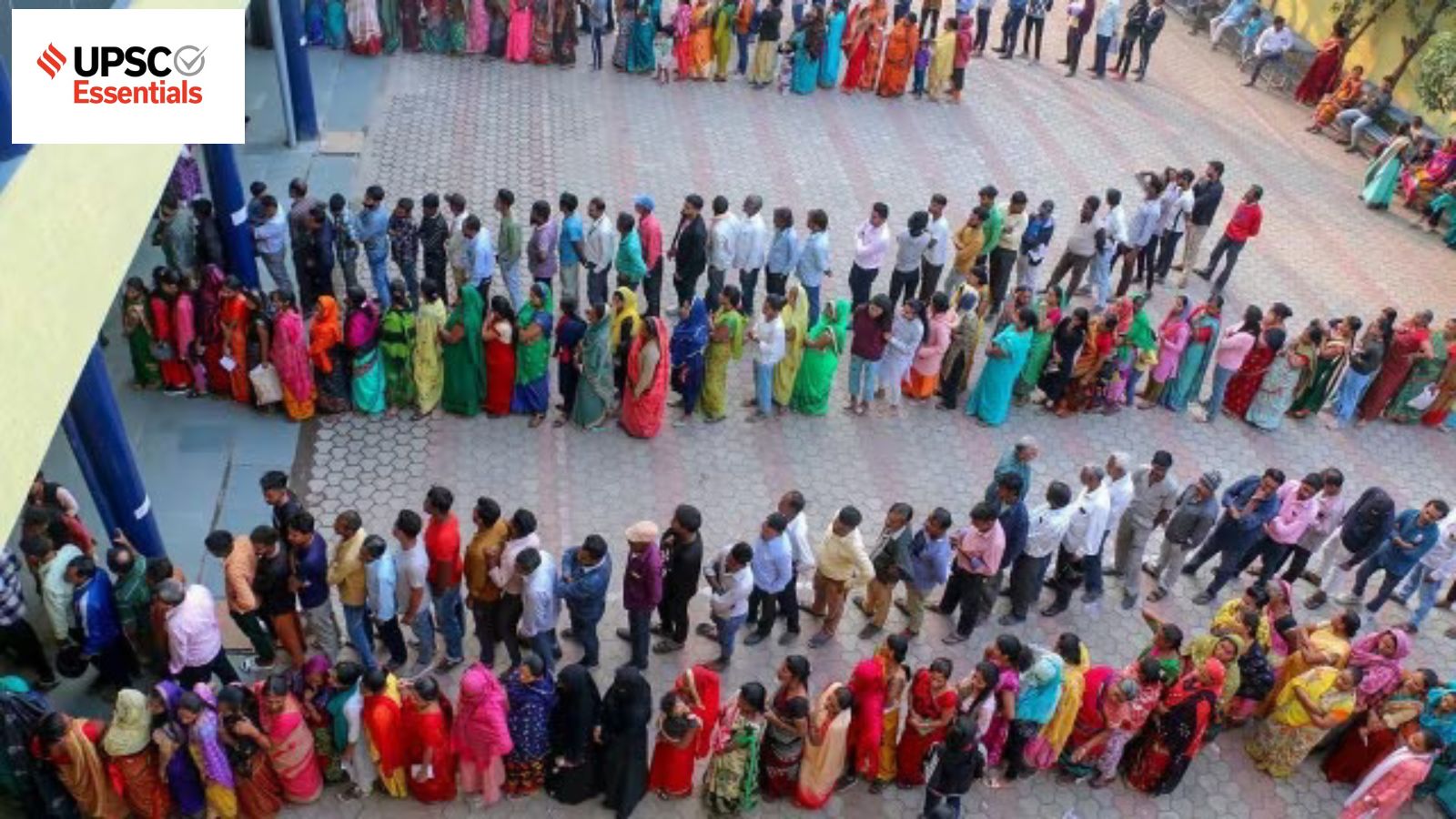UPSC Essentials presents its new initiative of daily subject-wise quizzes to help you revise important topics from the static part of the syllabus. Each day covers a new subject, and today you can attempt the Polity and Governance quiz to assess your progress. Don’t forget to check back tomorrow for the History, Culture, and Social Issues MCQs. Make sure to review the answers and explanations at the end of the quiz.
1. (b) Only two
2. (d) Neither 1 nor 2
3. (c) Both 1 and 2
4. (c) Only three
5. (d) All four
Answers:
1. Statement 1 about electoral trusts is correct under Section 17CA of the Income-tax Act, 1961. Statement 2 regarding NRIs not being able to contribute to electoral trusts is incorrect. Statement 3 stating that electoral bonds are exempt from disclosure requirements is correct. Statement 4 about electoral bonds being available for purchase throughout the year is incorrect. Therefore, the correct answer is option (b) Only two.
2. Reserved seats for Scheduled Castes, Scheduled Tribes, and Other Backward Classes are known as vertical reservations. Therefore, statement 1 is incorrect. Horizontal reservations apply to other categories such as women, veterans, and people with disabilities. Therefore, statement 2 is also incorrect. Therefore, the correct answer is option (d) Neither 1 nor 2.
3. Voter turnout indicates the percentage of eligible voters who cast their vote. The statement 1 stating this is correct. India’s turnout has either remained stable or increased, making statement 2 also correct. Therefore, the correct answer is option (c) Both 1 and 2.
4. Dual-member constituencies were introduced by the Delimitation Commission Act, of 1952, making statement 1 incorrect. The introduction was meant to reserve seats with sizable SC and ST populations, making statement 2 correct. The system was discarded through the Two-Member Constituencies (Abolition) Act, 1961, making statement 4 correct. Uttar Pradesh had the most dual-member seats in the 1952 Lok Sabha elections, making statement 3 correct. Therefore, the correct answer is option (c) Only three.
5. The Parliament has the authority to legislate on all four options under Article 3. Therefore, the correct answer is option (d) All four.

